Best B2C Marketing Automation Tools in 2025 (AI Solutions for Small Business Growth)
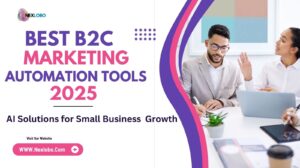
Here are the top 8 B2C marketing automation Tools platforms for small businesses in 2025, along with pricing, standout features, and best-use cases:
- HubSpot Marketing Hub – All-in-one CRM & automation platform (Free plan available)
- ActiveCampaign – Strong for email + SMS workflows (plans from $29/month)
- Klaviyo – Great for e-commerce personalization (free tier for 250 contacts)
- Mailchimp – Simple entry-level tool (free plan for up to 500 contacts)
- Zoho Marketing Automation – Affordable option with AI features (from $12/month)
- Salesforce Marketing Cloud – Advanced solution for scaling SMBs (custom pricing)
- Omnisend – Multichannel automation made easy (free for 250 contacts)
- Marketo Engage – Enterprise-grade personalization (custom pricing)
Introduction: Why Small Businesses Need B2C Marketing Automation Tools in 2025
If you’re running a small business in 2025, you already know it’s a fast-moving world. Customers don’t just want good products—they expect personalized engagement, lightning-fast responses, and seamless experiences across every channel. And let’s be honest, keeping up with all of that manually? Nearly impossible.
This is precisely where B2C marketing automation comes in. These platforms give small businesses the power to save hours of work, reduce costs, and launch campaigns that feel personal—something that, a few years ago, only large corporations could pull off.
Picture this: a local bakery that used to rely entirely on walk-ins. With the right automation, that same bakery can:
- Send morning SMS alerts about fresh bread.
- Run customer loyalty campaigns via email.
- Suggest pastries based on past purchases.
I’ve seen firsthand how small businesses can transform when they implement even a simple automation workflow. It’s almost like hiring a mini marketing team, without the overhead.
👉 New to digital marketing? Start with our beginner’s guide on How to Start Freelance Digital Marketing at Home before investing in automation tools.
What Are B2C Marketing Automation Tools?
Definition and Core Features
At their core, B2C marketing automation tools are software solutions designed to take repetitive marketing tasks off your plate, such as:
- Email campaigns
- Customer segmentation
- SMS reminders
- Abandoned cart recovery
- Personalized product recommendations
Instead of blasting generic newsletters, these platforms enable you to craft AI-driven customer journeys that adapt in real-time to individual behaviour. I’ve watched small business owners send just one campaign and see results across hundreds of unique customer experiences. It’s like magic—but backed by data.
How They Differ from B2B Tools
- B2C: High-volume messaging, quick interactions, emotional engagement.
- B2B: Long sales cycles, lead scoring, multiple decision-makers.
For example, a B2C clothing store might run a “24-hour flash sale” via SMS. Meanwhile, a B2B software company might nurture a lead through a six-month drip email campaign. The difference? Speed, scale, and how emotional messaging drives conversions in B2C.
The Rise of AI in Small Business Marketing
Key Trends in 2025
AI has stopped being optional in marketing—it’s central. According to McKinsey (2025), businesses leveraging AI for personalization saw revenue growth up to 40% higher compared to competitors who ignored it.
Key AI-driven trends shaping 2025 include:
- Predictive analytics to anticipate purchase behavior.
- Chatbots provide round-the-clock customer support.
- Real-time personalization of website and campaign content.
And trust me, small business owners who embrace AI early are the ones who notice a real competitive edge.
Real-World Example
Consider Luna Jewellery, a boutique that adopted AI-powered marketing automation. By segmenting customers based on purchase history, they sent personalized offers to their top buyers—and achieved a 37% increase in repeat purchases within just three months. It’s the kind of result that makes you wish you’d started sooner.
Benefits of Using B2C Marketing Automation Tools
1. Cost Efficiency and Time Savings
Automation handles repetitive tasks, allowing a small team to operate like a whole marketing department. I’ve seen owners go from spending hours a day on emails to freeing up whole mornings for product development.
2. Better Customer Engagement
Timely, personalized campaigns make customers feel valued and noticed. And as we all know, engaged customers are loyal customers.
3. Personalization at Scale
AI-driven recommendations and tailored promotions mean even a two-person team can create campaigns that feel one-on-one. Customers notice, and it pays off.
4. Data-Driven Insights
Every click, view, and purchase is tracked and fed into analytics dashboards. Small businesses can now make informed decisions based on data, rather than relying on guesswork.
Top B2C Marketing Automation Tools in 2025
1. HubSpot Marketing Hub

- Pricing: Free plan available; paid tiers from $20/month
- Strengths: Combines CRM with automation, robust analytics, and wide integration options
- Limitations: Premium features require higher-tier plans
- Best Fit: Small businesses preparing for rapid growth
👉 HubSpot’s free CRM + automation tools are perfect for startups testing the waters. I’ve seen new businesses get immediate traction with just the free plan.
2. ActiveCampaign

- Pricing: Starts at $29/month, free trial included
- Strengths: Advanced customer journey mapping, strong email deliverability
- Limitations: Can feel complex for beginners
- Best Fit: Businesses focusing on email + SMS engagement
3. Klaviyo
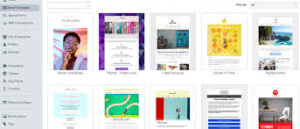
- Pricing: Free for 250 contacts; paid plans from $20/month
- Strengths: Tailored for e-commerce with predictive analytics
- Limitations: Pricing escalates quickly with larger lists
- Best Fit: Online stores on platforms like Shopify or WooCommerce
👉 If you run an online store, start with the free tier—I’ve seen merchants double repeat purchases in a matter of months.
4. Mailchimp

- Pricing: Free up to 500 contacts; paid plans start at $13/month
- Strengths: Simple interface, pre-built templates, beginner-friendly
- Limitations: Less advanced automation compared to competitors
- Best Fit: Small businesses just starting out
5. Zoho Marketing Automation

- Pricing: From $12/month
- Strengths: Affordable pricing, AI-powered insights
- Limitations: The Interface is not as polished as premium tools
- Best Fit: Small businesses on a budget
6. Salesforce Marketing Cloud
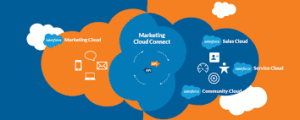
- Pricing: Custom pricing (typically $$$$)
- Strengths: Enterprise-grade features, strong integrations, scalability
- Limitations: Steep learning curve, higher costs
- Best Fit: SMBs planning long-term growth
7. Omnisend
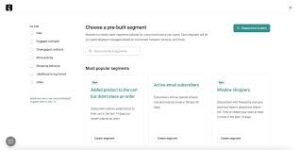
- Pricing: Free up to 250 contacts; paid plans from $16/month
- Strengths: Multichannel automation (email, SMS, push notifications)
- Limitations: Fewer advanced features than premium platforms
- Best Fit: Retail and e-commerce businesses
8. Marketo Engage
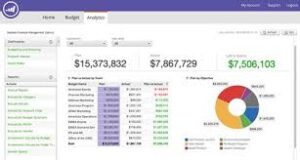
- Pricing: Enterprise pricing starting around $1,000/month
- Strengths: Powerful personalization, AI-driven campaigns
- Limitations: Expensive for tiny businesses
- Best Fit: Fast-growing SMBs or enterprises
Comparison of Leading B2C Tools
Tool Pricing Pros Cons Best Fit
HubSpot: Free – $20+ CRM + automation, analytics, integrations. Expensive at scale. SMBs ready to grow
ActiveCampaign: $29+ Advanced workflows, deliverability, Complex setup, Customer journey focus
Klaviyo: Free – $20+ E-commerce personalization. Price increases with the number of contacts, Especially Online retailers.
Mailchimp: Free – $13+ Easy setup, templates, Limited automation depth, Beginners
Zoho: $12+ Budget-friendly, AI analytics, Basic UI, Small budgets
Salesforce: $$$$ Enterprise-ready, scalable, Expensive, complex, growing SMBs
Omnisend: Free – $16+ Multichannel options Limited advanced features Retail/e-commerce
Marketo: $1,000+ Deep personalization, AI automation Costly, complex Fast-scaling SMBs
Common Mistakes Small Businesses Make with Marketing Automation
- Over-Automation: Bombarding customers with messages = unsubscribes.
- Skipping Analytics: Without tracking, you’re just guessing.
- Ignoring Segmentation: Sending the same message to everyone reduces impact.
Future of B2C Marketing Automation Beyond 2025
- Predictive Analytics: AI predicts when customers are likely to repurchase.
- Conversational Marketing: Chatbots and voice assistants become standard.
- Hyper-Personalization: Every customer journey feels individually crafted.
FAQs on B2C Marketing Automation Tools
Are these tools expensive?
Not necessarily—Mailchimp and Zoho offer affordable entry points for SMBs.
Do small businesses really benefit from automation?
Absolutely—even a small bakery can see significant results with timely SMS reminders.
Which tool is best for e-commerce in 2025?
Klaviyo and Omnisend stand out for online stores.
Do they require technical skills?
Most platforms offer drag-and-drop interfaces that are perfect for beginners.
What’s the difference between B2B and B2C automation?
B2B focuses on long lead cycles; B2C is faster, higher-volume, and transactional.
How can I measure success?
Track KPIs like open rates, click-through rates, and conversions.
Conclusion: How Small Businesses Can Thrive with AI Automation in 2025
In 2025, B2C marketing automation is no longer optional—it’s essential. The right tool allows small businesses to:
- Save valuable time
- Reduce operational costs
- Deliver personalized experiences at scale
👉 Start with beginner-friendly platforms like Mailchimp or Zoho, and as your business grows, move to advanced solutions like HubSpot or Klaviyo. I’ve seen companies evolve dramatically by following this path—it really works.
References
- HubSpot – State of Marketing Report
- Statista –Global Marketing Automation Spend
- McKinsey –AI in Marketing 2025
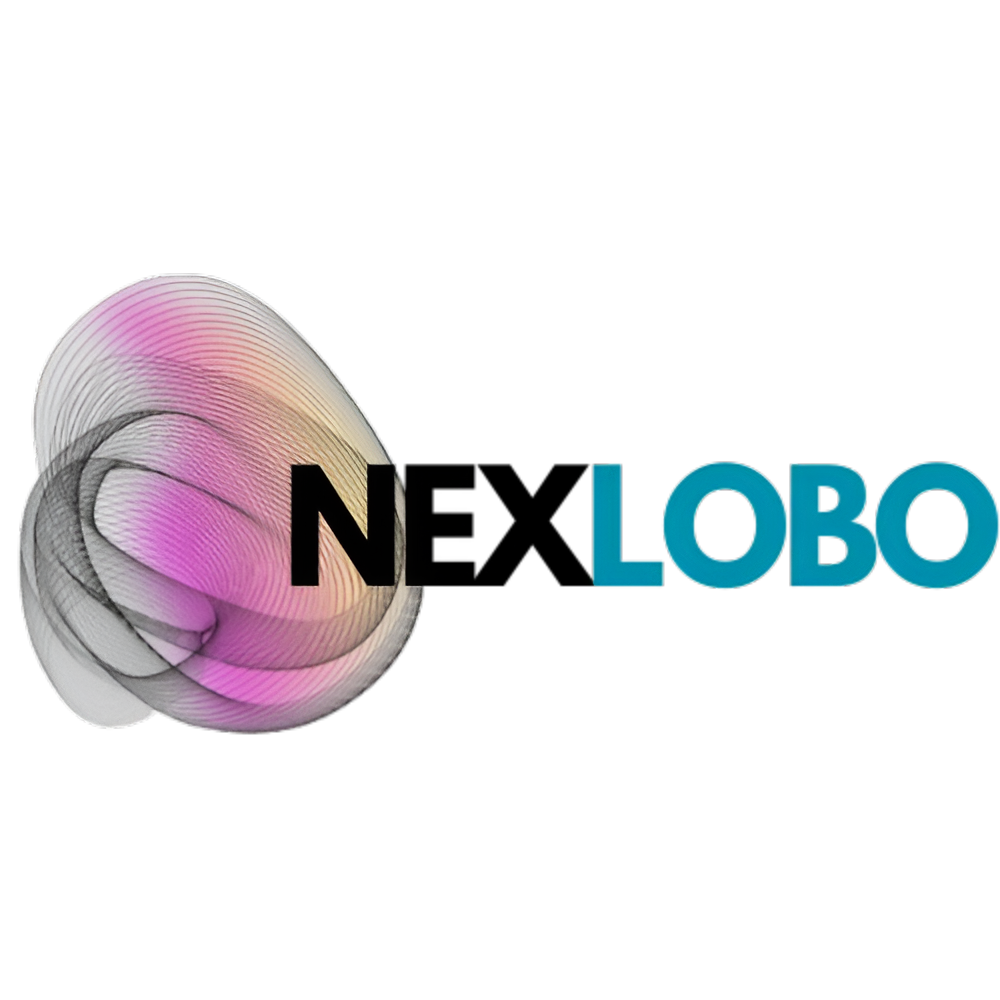
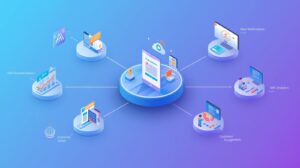






Leave a Reply